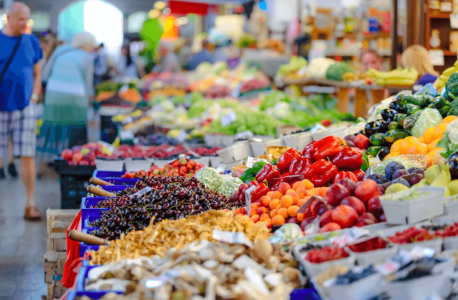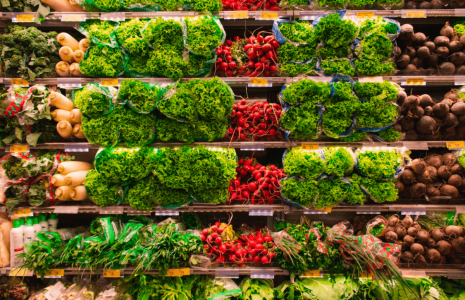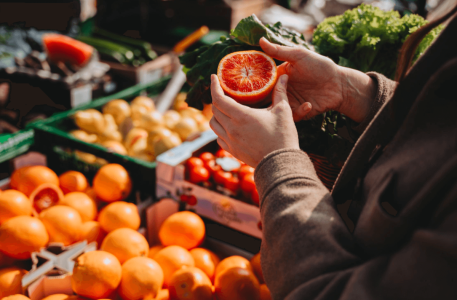Food wastage: Are 'cosmetic' standards from retailers to blame? A new inquiry suggests so
- Replies 5
As the cost-of-living crisis continues to grip Australia, NSW's parliamentary inquiry into food security has revealed a shocking truth: much of the food ending up in landfills is rejected by major supermarkets due to strict 'cosmetic' standards, such as minor visual defects or being slightly misshapen.
Independent MP Alex Greenwich, chair of the inquiry, noted it was an 'unacceptable' practice during a time when many Australians are struggling to make ends meet.
'We've got perfectly good food that doesn't meet some of the cosmetic standards of the big supermarket chains being forced into waste because, you know, a zucchini is bent the wrong way or a banana is the wrong colour,' said the MP.
Wastage of consumable food is a huge problem in Australia, with figures from the Department of Environment revealing that Australians waste the equivalent of 312 kilograms of food per person annually. This reportedly costs the economy an estimated $36.6 billion a year.

This shocking practice isn't exclusive to supermarkets.
Sydney Markets, the largest fresh fruit and vegetable wholesale market in Australia, also deals with tons of perfectly good food being thrown out, all thanks to the 'unfair' size or shape specifications.
'When you come here and see all that wastage, it's crazy. It shouldn't be happening,' said Zayde Naman from Sydney Imperial Deliveries.
Mr Naman believes customers must also 'address the high standards' causing so much food to be thrown away. 'At the end of the day, as long as it cuts right and it tastes right, they can put it on a plate,' he said.
NSW-based apple and cherry grower Guy Gaeta echoed the sentiment, noting that supermarkets' unrealistic expectations about fresh produce also add to the problem.
He said consumers are being exposed to 'unrealistic' expectations set by supermarkets on the quality of fresh produce, adding: 'We don't make them in a factory, you know… We don't mix them like baking a cake. It's mother nature!'

In light of these findings, the inquiry has recommended restrictions be put on the major supermarkets to put a stop to avoidable food wastage.
'We need to make sure there is a clear framework, that there are policies that are enforceable to make sure that there's perfectly good fruit and vegetables not going to waste,' said Mr Greenwich.
He believes this will ultimately 'drive down the cost for fruit and vegetables, making it more accessible for more people.'
Woolworths responded to the inquiry's call for comment, noting that their 'specifications are adaptable and respond to the quality, quantity and availability of produce in the market, which is affected by seasonality, supply and weather.'
Coles, on the other hand, did not comment.

This story highlights that there is still room for improvement, not just for the supermarkets but also for us as consumers.
As shoppers, we have the power to make a difference by choosing to purchase and consume 'imperfect' fruit and vegetables, even if only once in a while. Not only can this help curb food waste, but it could also lead to savings at the grocery store. Every little bit helps!

Members, what's your take on this issue? Do you believe that the government should step in and regulate supermarkets' cosmetic standards, or do you think that there's a valid reason behind these strict guidelines? Share your thoughts and opinions in the comments below!
Independent MP Alex Greenwich, chair of the inquiry, noted it was an 'unacceptable' practice during a time when many Australians are struggling to make ends meet.
'We've got perfectly good food that doesn't meet some of the cosmetic standards of the big supermarket chains being forced into waste because, you know, a zucchini is bent the wrong way or a banana is the wrong colour,' said the MP.
Wastage of consumable food is a huge problem in Australia, with figures from the Department of Environment revealing that Australians waste the equivalent of 312 kilograms of food per person annually. This reportedly costs the economy an estimated $36.6 billion a year.

Strict cosmetic standards imposed by major supermarkets are causing tons of food to go to waste. Credit: Pexels/PhotoMIX Company.
This shocking practice isn't exclusive to supermarkets.
Sydney Markets, the largest fresh fruit and vegetable wholesale market in Australia, also deals with tons of perfectly good food being thrown out, all thanks to the 'unfair' size or shape specifications.
'When you come here and see all that wastage, it's crazy. It shouldn't be happening,' said Zayde Naman from Sydney Imperial Deliveries.
Mr Naman believes customers must also 'address the high standards' causing so much food to be thrown away. 'At the end of the day, as long as it cuts right and it tastes right, they can put it on a plate,' he said.
NSW-based apple and cherry grower Guy Gaeta echoed the sentiment, noting that supermarkets' unrealistic expectations about fresh produce also add to the problem.
He said consumers are being exposed to 'unrealistic' expectations set by supermarkets on the quality of fresh produce, adding: 'We don't make them in a factory, you know… We don't mix them like baking a cake. It's mother nature!'

Supermarkets are setting 'unrealistic' standards for consumers about what makes a perfectly good fruit or vegetable. Credit: Pexels/ Matheus Cenali.
In light of these findings, the inquiry has recommended restrictions be put on the major supermarkets to put a stop to avoidable food wastage.
'We need to make sure there is a clear framework, that there are policies that are enforceable to make sure that there's perfectly good fruit and vegetables not going to waste,' said Mr Greenwich.
He believes this will ultimately 'drive down the cost for fruit and vegetables, making it more accessible for more people.'
Woolworths responded to the inquiry's call for comment, noting that their 'specifications are adaptable and respond to the quality, quantity and availability of produce in the market, which is affected by seasonality, supply and weather.'
Coles, on the other hand, did not comment.
Key Takeaways
- A NSW parliamentary report has recommended that restrictions be imposed on major supermarkets to prevent farm produce from being discarded due to minor visual defects or slight irregularity in shape.
- Produce farmers and vendors have reported that tons of fruit and vegetables are rejected by supermarkets and needlessly thrown away due to non-conformity with strict cosmetic standards.
- Data from the Department of Environment indicates that Australians waste an average of 312 kilograms of food per person annually, resulting in an estimated cost to the economy of $36.6 billion per year.
As shoppers, we have the power to make a difference by choosing to purchase and consume 'imperfect' fruit and vegetables, even if only once in a while. Not only can this help curb food waste, but it could also lead to savings at the grocery store. Every little bit helps!

Buying 'imperfect' fruit and vegetables, even occasionally, is one simple way that consumers can help reduce food waste. Credit: Pexels/Alesia Kozik.
Members, what's your take on this issue? Do you believe that the government should step in and regulate supermarkets' cosmetic standards, or do you think that there's a valid reason behind these strict guidelines? Share your thoughts and opinions in the comments below!







